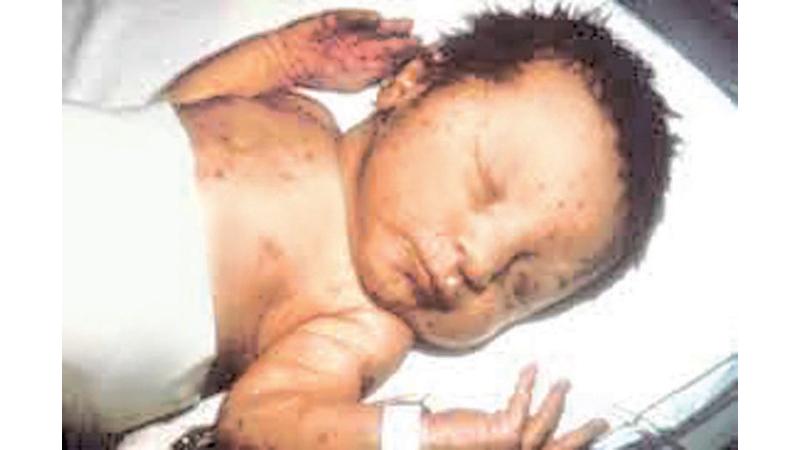
Rubella eliminated in Sri Lanka:
Vaccinations must continue with schools re-opening-Epidemiology Unit
The WHO last week declared Sri Lanka had eliminated rubella in 2020, and that endogenous rubella transmission has already stopped in the country. South East Asia Regional Commission of the World Health Organization declared that the Regional targets of Rubella elimination expected to be achieved in 2023, had already been achieved by Sri Lanka three years ahead of the expected target.
Consultant Epidemiologist, Ministry of Health, Dr Deepa Gamage told the Sunday Observer that despite being certified as a country that has eliminated Rubella, the challenge was to maintain the country’s Rubella free status.
 “Rubella is a viral disease which transmits easily from person to person. Earlier the rubella disease was called ‘German measles.’ Rubella disease usually appears as a mild illness but its impact on a newborn baby is devastating if it was contracted during pregnancy. Considering the critical effects which would lead to a social and economic burden on the country, the rubella vaccine was introduced to the National Immunization Program, for the reproductive-aged women in 1996, with the aim of preventing rubella disease and Congenital Rubella Syndrome (CRS) in the newborns.
“Rubella is a viral disease which transmits easily from person to person. Earlier the rubella disease was called ‘German measles.’ Rubella disease usually appears as a mild illness but its impact on a newborn baby is devastating if it was contracted during pregnancy. Considering the critical effects which would lead to a social and economic burden on the country, the rubella vaccine was introduced to the National Immunization Program, for the reproductive-aged women in 1996, with the aim of preventing rubella disease and Congenital Rubella Syndrome (CRS) in the newborns.
This vaccine-preventable disease is successfully eliminated by vaccinating other young children and school-aged children using rubella-containing vaccines from time to time to get the achievements that we see today”, she said. With schools now reopened, she said it was specially important to raise awareness among parents on this subject.
She said the rubella virus transmits through respiratory tract secretions during sneezing and coughing. Once the virus enters the body, it fights with the immune system of the body and infection occurs after 14-21 days. This means initial signs and symptoms occur after the virus is acquired into the body and after the elapse of the incubation period. These persons start spreading the disease even seven days before the appearance of the initial clinical signs of fever and rash and continue to transmit 2-3 days after the appearance of rash.
She said that if a country is having continued transmission of rubella infection, susceptible or un-immune pregnant mothers can get affected and deliver Congenital Rubella Syndrome affected babies with congenital abnormalities. If a woman gets the infection during the first 3-4 months of her pregnancy, severe and even fatal devastating effects occur in the baby. There is a 90% chance of passing the virus to her unborn baby during pregnancy which can result in miscarriages, still-births and a range of birth defects including eye defects such as cataracts (white spots), glaucoma (pressure in the eye), microphthalmia (abnormally small eyes), heart problems, ear problems and many other neurological problems including mental retardation and developmental problems of the baby. This condition is collectively called ‘Congenital Rubella Syndrome’ (CRS). If a woman gives birth to a baby with such congenital abnormalities, she has to look after this baby throughout her life causing a social and economic burden to the family and to the country.”, she said.
Dr Gamage said most of these dangerous complications could be prevented through the Rubella vaccination and every woman should be aware of such complications before becoming pregnant. “She should be encouraged to ensure adequate protection against the rubella virus by receiving rubella vaccination at any age before reaching child-bearing age as recommended by the National Immunization Program.” She said that Sri Lanka has achieved a very high vaccination coverage for rubella which led to the country accomplishing the Rubella elimination status . Sri Lanka provides two doses of rubella containing vaccines (as MMR vaccination) at nine months and three years as per the current schedule in the National Immunization Program. The vaccination and disease surveillance for rubella and CRS are nationally coordinated and implemented by the Epidemiology Unit of the Ministry of Health, through the field health staff and with hospital health staff as a coordinated activity. It was this team effort that led to the country achieving its current success status of certification of rubella elimination in 2020,” she said.
